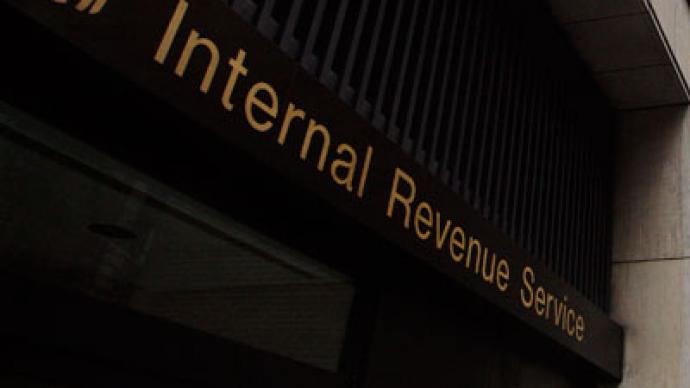IRS lost more than $5 bln of taxpayers' money

The US International Revenue Service gave more than $5.2 billion to identity thieves in 2011, failing to detect as many as 1.5 million false tax returns.
The Treasury Department estimates that another $21 billion will be lost to identity thieves over the next five years.The IRS did identify about one million false returns and blocked $6.5 billion in fraudulent refunds, but the billions that escaped its detection are causing concern over taxpayers’ security.The agency does not verify employer W-2 forms until after refunds are issued. While taxpayers can start filing returns in January, their employers are not required to submit withholding and income documents until the end of March, leaving room for the IRS to issue refunds before it can confirm them. Additionally, the IRS often fails to flag fraudulent cases because the returns don’t score high enough to merit a closer review.Meanwhile, a new form of fraud is taking advantage of the IRS’s fast online returns. Criminals need only a laptop and an Internet connection to steal someone’s identity, and using only Social Security numbers, they can make billions of dollars through false returns.“They’re sitting on a computer or iPad; they’re doing a return with a stolen identity where they don’t have to rob anybody or stick a gun in anybody’s face or run through the streets from police,” a police detective told CNN.Many identity thieves have been using their stolen money to buy luxury cars, expensive jewelry and even plastic surgery.“It’s like the federal government is putting crack cocaine in candy machines,” the detective said.Hundreds of false tax returns claiming the same address were sent from cities across the country. One address in Michigan filed 2,137 false tax returns – and the IRS issued it $3.3 million in refunds. An address in Florida only filed 518 tax returns, but received almost $1.8 million back.A growing trend among criminals is using the Social Security numbers of deceased persons. Another method is assuming the identities of people who don’t make enough money to file taxes in the first place. With no taxpayer present to complain, the thieves can get away with the fraud for much longer – at the victim’s expense.The Federal Trade Commission listed identity theft as the department’s No. 1 consumer complaint for the past 12 years. The inspector general found that the IRS wasn’t providing good customer service and proper assistance to victims of identity theft.“I’m sorry, you’ve had your identity stolen. You should really be more careful with your personal information. Maybe buy a shredder,” a Daily Kos contributor wrote, describing what he calls a typical response by the IRS.And as it becomes quicker and easier to file tax returns online, it becomes equally quick and easy for identity thieves to pocket billions of dollars.














